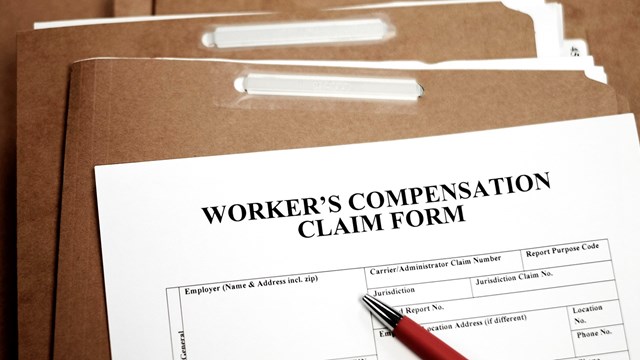
Even before the economic meltdown and the media storm swirling around the thievery of money men like Bernie Madoff, financial mismanagement and fraud have been destructive problems for many co-op and condo owners.
A co-op or condo is a major investment and for many people—it is their largest investment. Residents expect board members and other building management to take their fiduciary responsibility seriously and act in good faith as the caretakers of those investments. While the vast majority of managers and board members want nothing but the best for their communities, not all management personnel are beyond reproach. Because of this, residents need to know their risks for being fleeced, and how to manage those risks through checks and balances that will ensure transparency and prevent fraud.
News headlines around the country abound with cases involving property management companies and vendors rigging bids and embezzling funds. There were major indictments handed down by the New York District Attorney’s office in 1994 and 1999 for embezzlement, kickbacks and bid rigging among dozens of management companies and professional contractors and vendors.
Such a case recently touched the New York City area again when it was revealed that Alan Gorelick, an executive with Saparn Realty Inc., a management company, was arrested January 16 and charged with grand larceny after a cooperative they managed reported funds missing from its reserve account. The case is still pending.
Spotting Fraud
Certain things will make a building or HOA more vulnerable to fraud, such as a concentration of too much power in too few hands. When the board is controlled by a small minority, crooked activity is not only likelier to happen, it’s easier for thieves to get away with their crimes.
Along the same lines, if only one person is involved in approving expenditures, paying bills, cutting checks for vendor services and other such transactions, it means the building is only a person away from things going amiss. An obvious way to separate tasks and ensure some accountability is by hiring a property manager to handle operations. Management companies separate tasks through their own checks and balances systems. They’re also staffed with trained and licensed people, working for a firm that’s bonded and insured.
“Normally with management companies, transactions may be more formal, may require more check-offs,” says Richard Montanye, C.P.A .of Marin & Montanye, LLP, a certified public accounting firm in Uniondale. “However, in self-managed buildings, normally the board is directly involved in signing checks and approving purchases and such. It’s not necessarily that one is better than the other. It really depends on the controls in place and how they’re enforced on a regular basis.”
Jules Frankel, CPA, a shareholder with certified public accounting and consulting firm Wilkin & Guttenplan P.C., with offices in New York City and East Brunswick, New Jersey, urges boards to adhere to this concept of delegating duties to multiple individuals—a concept known as 'segregation of duties' in the accounting world—to lessen the chances of fraudulent activity.
“Here’s the concept of segregation of duties: Do not have one person do it all because then there are no checks and balances on that person,” Frankel says. With all power residing in one person, it’s kind of a dictatorship. “Rather,” he continues, “all board members should be aware of what’s going on and all have consensus.”
A lack of segregation of management duties is very dangerous, Frankel says. Rather than enabling one employee to control the books, have one person prepare a vendor payment, another authorize it, and yet another person sign the payment. A clear separation of duties should apply to all building accounts, however small they might be.
Spotting the Red Flags
Preventing fraud is partly about recognizing when something appears suspicious. Things that count as fraud in the legal sense aren’t always strictly cash-related. For example, board members cannot vote to approve contracts with anybody they know personally without disclosing that relationship to the board ahead of time. Property managers can’t funnel projects to a contractor with whom they have a discreet agreement to trade projects for free remodeling work at their house (bid rigging and kickbacks are said to be notorious in the world of co-ops and condos), experts say.
Even seemingly insignificant things like over-ordering supplies can be a symptom of fraudulent activity—someone could be selling them on the side for profit.
A board member or managing agent might suspect that the building’s finances are being mishandled by noticing some obvious warning signs.
“If you see that the management company is habitually late in providing you with your statements—most management companies do it monthly, some do it quarterly—[that’s a red flag],” Stuart Halper, an attorney with Briarcliff Manor-based Stuart Halper & Associates and a principal with Impact Real Estate Management, Inc. in Manhattan, says. “Often it’s a red flag that somebody is trying to perpetuate a fraud and doesn’t want to get caught. I’ve been involved in a number of court cases with this very situation.”
Another telltale sign can be when there’s an obvious lack of transparency with the management team. If actions are being taken on behalf of the property, which require votes of the board but board meetings aren’t being held, residents should dig deeper to see what’s what. Or if one particular contractor keeps lucking out and getting all of the big construction jobs that are done for the community, without an open bidding process, residents should speak up and find out why.
Checks and Balances
“Being on a board means you have a fiduciary responsibility,” Frankel says. “It doesn’t mean you have to manage the place—that’s the management company’s responsibility—but it does mean you have a responsibility to know what’s going on. Who’s making the deposits? Who’s endorsing the checks? Who is keeping the books and records and tracking receivables? Who’s tracking vendors? Who’s approving invoices?”
Often, the property management company will be the signer on checks from building operating accounts. This is risky, Montanye says. “The first and most important thing is to have board member’s signatures on all the bank accounts and keep the reserves in their own custody,” he says.
Woody Goldstein, CPA, the senior manager at MayerMeinberg LLP, an accounting firm with offices in Syosset, Long Island and Manhattan, agrees, noting that all board members and officers should be able to sign checks, but it must be dual signatures. “We have a client who we just got who absolutely did not follow that guideline and one board member was able to steal money,” Goldstein says. “The dual signature protects all parties. It protects the board, the community, and it's something that can save everybody a lot of unnecessary angst if money is taken.”
Even small accounts must be watched. Building-issued credit cards can be abused by employees who add a purchase or two for their own use each time they fill up the company truck. Those small purchases amount to big losses.
In addition to ensuring that the maintenance credit card account never exceeds a predefined spending limit, board members should check purchases made on the card to see that it’s all for the building. Someone should be reviewing the bank statements for the credit card and comparing those statements with receipts to make sure they match.
When it comes to financial transactions within the building community, plastic and checks rule. A building should never accept cash payments. When cash is on hand, there’s too much opportunity for criminal activity.
An obvious way to provide transparency in the building’s finances is to have them audited, at least yearly, Halper says.
Perhaps even more important, board members should read monthly financial statements and pay attention to what is being done with the building’s finances, Goldstein says. If given the chance, an unscrupulous person will figure out ways to make the ledger appear balanced, when the building really is falling behind due to theft.
According to Goldstein, this monthly financial report should contain a balance sheet with financial highlights, an income statement with a comparison of the actual to the budget, a receivable report that shows who owes the association (how much and for how long), an accounts payable report that shows who the association owes money to, a cash disbursement listing of all checks disbursed during the month, details of expenses where the checks were allocated to, copies of all paid invoices, new contract proposals and most importantly, a bank reconciliation. Goldstein says an association should get a bank reconciliation for each account they have, whether it is a reserve account or an operating account.
Reviewing financial statements is an important task that board members should never fail to complete. And doing so in a timely manner is half the trick. In this case, “timely” means within 10 days of the statement being issued. Simply put, the more days that pass between statements being reviewed by board members—the more time thieves have to get away with their crimes.
A quick review of the report isn't sufficient—analyzing it is imperative.
“After they get the report, it is extremely important that the board be proactive, review the report and raise questions,” Goldstein says.” If any item doesn't make sense or isn't in accordance with the board understood to be going on, they should really probe further.”
Deceit or Incompetence?
Being on-guard starts with knowing what to be on the lookout for, but, the distinctions aren’t as clearly etched as they might appear. After all, what is the legal difference between fraud and incompetence? Fraud is a crime and it involves willfully deceiving another, for one’s own gain. Incompetence, on the other hand, often means the individual suspected of malfeasance simply wasn’t properly trained, Halper explains.
“We took over one building and it was a fiasco because the person who was collecting the maintenance didn’t keep proper records,” Halper says. “It was very difficult to actually determine what the balances were, even when the managing agent came in to try and decipher who owed what. Was it intentional? No. The person is still a board member and I believe it was just problematic for her. In a lot of these buildings, nobody wants to do the work. It gets dumped on somebody and they do it but they don’t really do the work. That’s incompetence,” he says.
Regular monthly meetings of the board should occur and be open to residents, and that’s when business decisions for the community should be made. Bids for contracts above a set monetary amount (sometimes outlined in the building’s governing documents), must be reviewed and voted on after an open bid process.
“A common mistake made by co-op boards is giving the managing agent complete control over bid solicitations and the final decision on the selection, which could result in kickbacks, overcharging and poor-quality workmanship,” says Carl Cesarano, CPA, a partner in Floral Park-based Cesarano & Khan, CPA, PC. “The board should also independently solicit bids from vendors for large jobs, and make sure to research potential candidates. Avoid extremely low bidders, check references, find out if rates are competitive and make sure contractors are licensed.”
When Fraud is Found
If evidence of financial mishandling is uncovered in a building, steps to rectify the situation must be taken immediately, Halper says.
“The first thing a board needs to do is take control of their bank account and stop the bleeding. They have to institute complete control immediately. That means taking the checkbook away and taking the monies away from the managing agent,” he says.
Next, it's time to bring in the pros. Halper suggests a board go to its accountant to put an end to speculation and determine definitively why there are missing funds, who took said funds and how it was done. A claim should also be filed with the board’s or association's insurance company. If a board or an association has a policy protecting them from employee dishonesty, it might be able to file a claim and recover some of those losses, Cesarano says.
Co-op/condo fraud is a state crime in New York, is considered larceny and theft and is punishable with prison time, Halper says. Boards need to bring in their attorneys immediately to devise a plan of action, which may start with a trip to the District Attorney's office.
“The best place to go is the D.A.'s office—it’s generally the fraud’s bureau. Years ago, probably about 13 to 14 years ago when there was a major investigation into bid-rigging, the prosecution was led by the New York County D.A.’s fraud unit. A lot of boards incorrectly think the attorney general or the police will step in, but my experience has been that it’s the D.A.'s office,” he says.
Halper also suggests boards consider filing a civil suit against the offending managing agent/firm if they are still in business.
There's no such thing as being too careful when it comes to scrutinizing financial records. A board shouldn't be afraid to ask its various advisers for assistance, no matter how seemingly small the question might be. A special audit of the building’s finances might even be needed to determine if something is truly amiss. It could be a small price to pay to avoid a huge headache.
Jonathan Barnes is a freelance writer who regularly contributes to The Cooperator. Editorial assistant Enjolie Esteve contributed to this article.






Comments
Leave a Comment